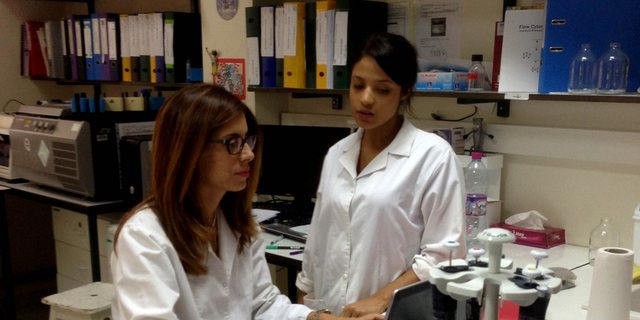Capacity-building is a cross-cutting task, involving all the Institute’s scientific activities, based on the belief that development entails independent scientific communities, open to social challenges. The work completed over 2016 means that capacity building at IRD, and especially the ‘support research communities in developing countries and increase their autonomy and research capacity’ component, is a core element of the strategic tasks defined in the Strategic Direction Plan. It is based on regular programmes designed to boost research capacities and is continually enriched by new missions.
Support for PhD students remains crucial and 21 ARTS thesis scholarships were awarded. To strengthen France’s efforts in scientific cooperation, IRD joined up with other partners with the same objective for training in the Global South. IN2P3 and the Mérieux Foundation have appointed IRD to manage their support services for PhD students in the Global South. IRD and the UPMC ran the international PhD programme on ‘Modelling complex systems’. In Peru, 2 Franco-Peruvian PhD schools received backing.

Support for emerging teams in developing countries is also vital to increase our partners’ autonomy and international competitiveness. As such, 10 new teams were selected as part of the JEAI programme for junior teams affiliated with the IRD. Two training workshops, bringing together all the junior teams in West Africa, were held in Niger and Senegal, and covered team management, communication with the public, and fund-raising. These training sessions are an opportunity for junior researchers from the Global South to meet and discuss and, in Dakar, in partnership with MakeSense, a chance for dialogue between researchers and social entrepreneurs.
In 2016, the SEP2D biodiversity programme launched the first calls for projects on the economic innovation and promotion, research and capacity-building aspects. The Agricora programme on climate risk management and agriculture in West Africa selected three research projects on the issues of climate services for agriculture, ecological intensification, and water resources for agriculture. Finally, via the Amruge programme, ten research programmes on health and technologies have provided a boost for research partnerships in Côte d’Ivoire and their international partners. These programmes prompt intense research activity, provide quality framework for training, and develop new partnerships, particularly with non-academic stakeholders when transferring the knowledge acquired to decision-makers or socio-economic stakeholders, and so on.
IRD took part in the social sciences summer school in Danang in Vietnam in July 2016: ‘energy transition issues in Vietnam and Southeast Asia’. In July 2016, almost 300 participants from 80 countries took part in the first AMU-IRD Sustainable Development Goals summer school in Marseille.
In 2016, IRD stepped up its involvement in teaching via university programmes (master’s courses) on sustainable development issues. In a consortium with universities from France and the Global South, IRD received two European Erasmus+ grants for training capacity-building projects, in the field of water and cities in Africa, and in the field of linguistics in Southeast Asia, demonstrating the value for donors in combining research with university cooperation.